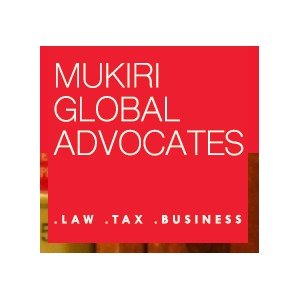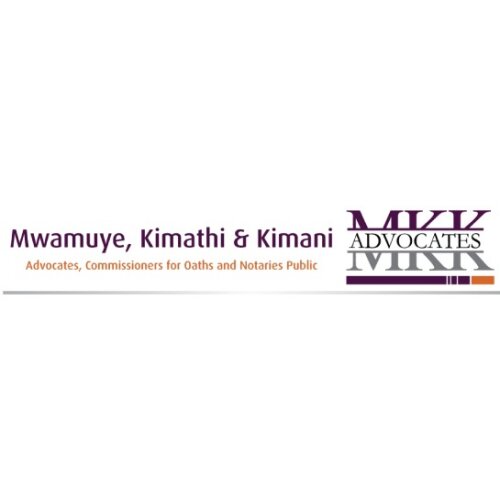Best Sustainable Finance Lawyers in Nairobi
Share your needs with us, get contacted by law firms.
Free. Takes 2 min.
List of the best lawyers in Nairobi, Kenya
Legal guides written by Adroit Law LLP:
- Kenya Launches Digital Nomad Visa: A Gateway for Remote Workers
- Navigating the Payment System License Maze in Kenya
- Navigating the Complexities of Mining Licenses and Permits in Kenya: A Look into Artisanal and Large-Scale Operations
About Sustainable Finance Law in Nairobi, Kenya
Sustainable Finance refers to the integration of environmental, social, and governance (ESG) considerations into financial services and investment decision-making. In Nairobi, Kenya's commercial and financial capital, Sustainable Finance is gaining prominence as both local and international investors seek to align their business practices with global best standards. As the Nairobi International Financial Centre grows, so does the focus on sustainable development goals, green bonds, ethical investing, and the implementation of frameworks ensuring responsible banking and investment. This evolving field connects finance with broader societal goals, supporting Kenya's Vision 2030 and its commitments under the Paris Agreement.
Why You May Need a Lawyer
Navigating Sustainable Finance laws and regulations in Nairobi can be complex, especially given the evolving regulatory environment and multiple stakeholders involved. Here are situations where legal help may be necessary:
- Structuring or launching green bonds, climate funds, or other sustainability-linked financial products
- Understanding regulatory compliance for banks, insurance companies, and asset managers regarding ESG requirements
- Negotiating contracts and due diligence for sustainable development or clean energy investment projects
- Disputes related to ESG ratings, disclosures, or allegations of "greenwashing"
- Advising on incentives, grants, or credits linked to sustainable investments or renewable energy
- Ensuring compliance with anti-corruption, transparency, and reporting laws tied to sustainable finance
- Legal due diligence for mergers, acquisitions, or partnerships in environmentally sensitive industries
Local Laws Overview
Kenya, through various regulatory bodies and financial sector charters, is laying down the legal framework for Sustainable Finance. Key aspects of these laws include:
- Central Bank of Kenya (CBK) Guidelines: The CBK has issued Sustainable Finance Initiative (SFI) guidelines for banks and financial institutions, establishing standards for risk management, environmental and social due diligence, and disclosure requirements.
- Capital Markets Authority (CMA): CMA regulations govern the issuance of green bonds and require strict compliance on use of proceeds, impact reporting, and third-party verifications.
- Government Policies: The National Treasury has developed the Green Fiscal Incentives Policy Framework to support green investments and sustainable financing options.
- Sector-Specific Laws: Laws such as the Energy Act, 2019, and environmental regulations under the National Environment Management Authority (NEMA) are key for investments in renewables or climate projects.
- International Agreements: Kenya’s ratification of the Paris Agreement and alignment to Sustainable Development Goals influence local sustainable finance policies and reporting obligations.
Frequently Asked Questions
What is considered Sustainable Finance in Nairobi, Kenya?
Sustainable Finance in Nairobi includes any financial service, product, or investment that integrates environmental, social, and governance considerations, such as green bonds, responsible banking practices, and ESG-compliant investment vehicles.
Who regulates Sustainable Finance activities in Nairobi?
The Central Bank of Kenya, the Capital Markets Authority, and the National Treasury are the primary regulators. Sector-specific bodies like NEMA may also oversee certain projects.
What is a green bond?
A green bond is a type of fixed-income financial instrument where the proceeds are exclusively used to finance or refinance projects with positive environmental or climate benefits.
Do companies in Nairobi have to disclose ESG risks?
Many financial institutions and listed companies are required to report on ESG risks and mitigation strategies under CBK and CMA guidelines, with increasing emphasis on transparency and disclosure.
How can I benefit from government incentives for sustainable investments?
The Kenyan government, under the Green Fiscal Incentives Policy, provides tax breaks, grants, and other incentives for qualifying green projects and investments. A lawyer can help determine eligibility and navigate application processes.
How does sustainable finance law affect small and medium enterprises (SMEs)?
SMEs seeking financing for sustainable ventures must meet both traditional loan criteria and additional ESG or impact assessment requirements under Kenyan financial sector rules.
What is "greenwashing" and how can I avoid legal issues related to it?
Greenwashing refers to making misleading claims about the environmental benefits of a financial product or project. Legal advice is essential to ensure accurate reporting and avoid reputational and regulatory penalties.
Can legal experts help with sustainable investment due diligence?
Yes, lawyers specializing in Sustainable Finance can undertake ESG due diligence, assist with disclosure obligations, and help structure deals that comply with Kenyan law.
Are there specific laws for renewable energy financing?
Yes, the Energy Act and related regulations, supervised by EPRA and NEMA, set out the requirements for project approval, incentives, and environmental compliance for renewable energy financiers.
What should I do if I want to start a sustainable finance fund or service?
Consult with a local legal expert to help structure your fund, obtain necessary approvals, comply with financial and environmental regulations, and draft the relevant documentation.
Additional Resources
Those seeking more information or guidance on Sustainable Finance in Nairobi, Kenya can contact or consult:
- Central Bank of Kenya (CBK): For banks and financial sector guidelines on Sustainable Finance
- Capital Markets Authority (CMA): For regulations on green bonds and capital markets products
- National Environment Management Authority (NEMA): For environmental approvals and compliance
- Energy and Petroleum Regulatory Authority (EPRA): For matters related to renewable energy financing
- Kenya Bankers Association (KBA): For Sustainable Finance Initiative resources and industry standards
- Nairobi Securities Exchange (NSE): For information on ESG reporting and sustainable investment products
- Kenya Green Building Society: For sustainable real estate and green building finance
Next Steps
If you need legal assistance in Sustainable Finance in Nairobi, Kenya, start by identifying your specific needs - whether it is compliance, investment structuring, due diligence, or dispute resolution. Gather any documents and information relevant to your matter. Next, consult an advocate or law firm with demonstrated expertise in Sustainable Finance and ESG matters in Kenya. During your consultation, discuss your goals, clarify cost structures, and establish a clear action plan. Keeping up to date with regulatory changes and new government incentives through official channels and trusted legal professionals is also highly recommended. Taking these steps will help position your project or investment for both legal compliance and long-term sustainability.
Lawzana helps you find the best lawyers and law firms in Nairobi through a curated and pre-screened list of qualified legal professionals. Our platform offers rankings and detailed profiles of attorneys and law firms, allowing you to compare based on practice areas, including Sustainable Finance, experience, and client feedback.
Each profile includes a description of the firm's areas of practice, client reviews, team members and partners, year of establishment, spoken languages, office locations, contact information, social media presence, and any published articles or resources. Most firms on our platform speak English and are experienced in both local and international legal matters.
Get a quote from top-rated law firms in Nairobi, Kenya — quickly, securely, and without unnecessary hassle.
Disclaimer:
The information provided on this page is for general informational purposes only and does not constitute legal advice. While we strive to ensure the accuracy and relevance of the content, legal information may change over time, and interpretations of the law can vary. You should always consult with a qualified legal professional for advice specific to your situation.
We disclaim all liability for actions taken or not taken based on the content of this page. If you believe any information is incorrect or outdated, please contact us, and we will review and update it where appropriate.

















